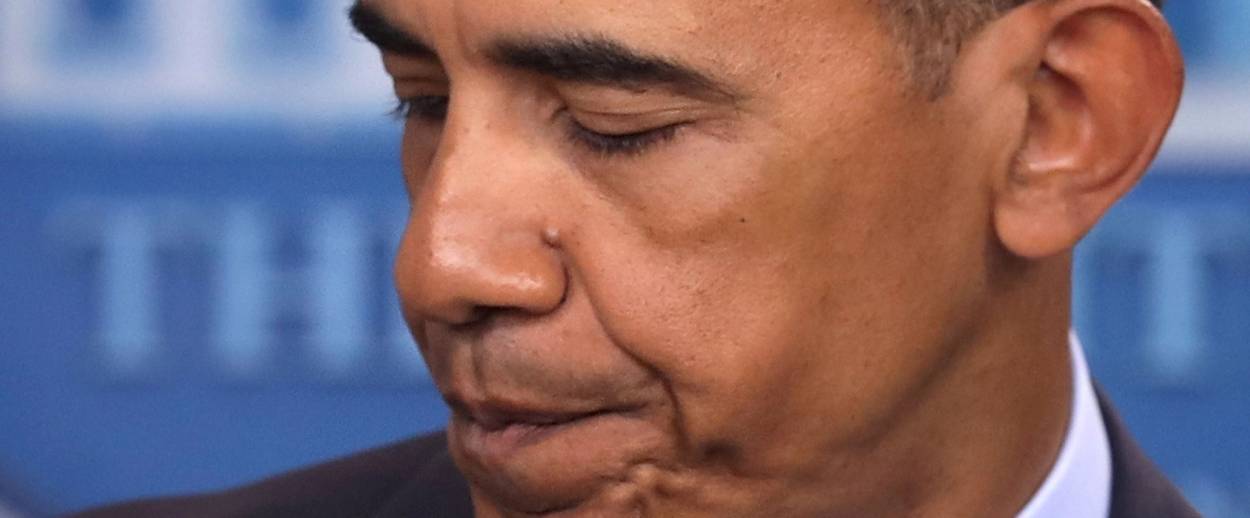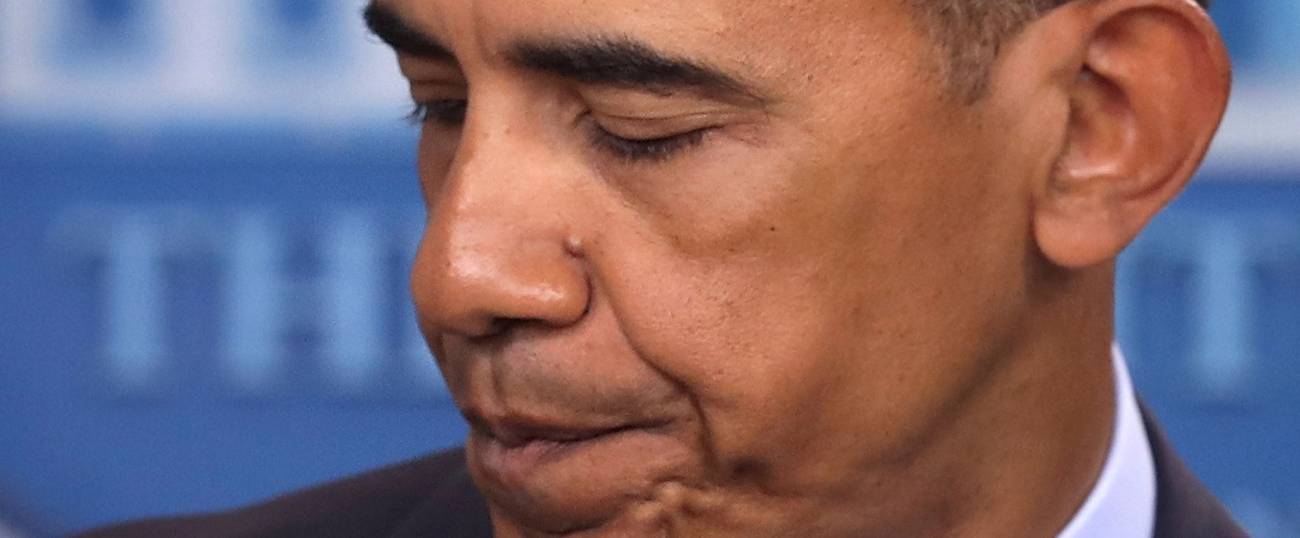Terror and Oratory
What is the right thing to say?




The reactions to the Orlando massacre show everything that is wrong with our campaign against the jihad. President Barack Obama in his first remarks conveyed anguish, but not anger. He identified the terrorist’s motivation as “hatred,” and, in order to underline his point, he repeated the word “hate” a couple of times. But he did not choose to define the particular hatred at hand. This is the Islamist ideology that wishes to exterminate large portions of the human race for theological reasons: the gays (as in this instance), the Jews, the Muslim miscreants and “hypocrites,” the Muslim heretics (Shia and others, who of course have suffered the most horribly from terrorist attacks), and so forth. Obama has never discussed this ideology. He is opposed to discussing it. Sometimes he mentions “extremism,” but he has never bothered to define “extremism,” either.
Donald Trump in his response on Sunday demonstrated why he is such a formidable political figure. He exploded in anger at Obama, and the display of emotion was striking for how rare it is, among America’s political leaders. He called on Obama to resign because of his failure to say the words “radical Islam,” which was preposterous. But Trump managed at least to look like a man who was pounding the table. His point about failing to say the words might almost seem to be persuasive, if only Trump himself knew how to say those words with a reasonable degree of intelligent nuance. But he does not. He ends up railing at the entire Muslim world, which means at our best allies, too. In Afghanistan since well before Sept. 11, 2001, Afghani soldiers have been fighting and dying every day in the grueling effort to defeat the Taliban. And yet, because Omar Mateen was the son of Afghani immigrants, Trump took the occasion to denounce virtually the entire population of Afghanistan.
Trump’s way of discussing “radical Islam” amounts to agreeing with the Islamists themselves. The Islamists think the world has never left the Middle Ages, and we are forever reliving the war of the Crusades versus the jihad. Trump thinks likewise. His definition of the enemy adds up to nearly a quarter of the human race, which is the Muslim population. It ought to be obvious that Islamism’s principal victims have always been Muslims; and Islamism’s principal opponents have likewise been Muslims. But nothing is obvious to Trump.
Hillary Clinton’s first instinct, on Sunday, was as bland as Obama’s. She, too, spoke of “hatred,” and otherwise declined to define the enemy. She offered a set of policies. She wants to “double down.” She favors “working with allies and partners,” “countering their attempts to recruit people here and everywhere,” and “hardening our defenses at home”—all of which reminds us, at least, that she does know how to lay out a policy. On Monday, in response to Trump’s taunts (and prompted by Joe Scarborough), she uttered the phrase, not for the first time, “radical Islamism” (which is a more accurate term than “radical Islam”), and this was good. But there is a reason why, when Hillary lays out her policy principles, the doctrinal issues do not come up, or do so only as afterthoughts. She has the diplomat’s bias, which is to avoid the ideological confrontations, whenever possible. This was the reason for one of her largest failures as secretary of State, which was the failure to appreciate the full danger to democracy posed by the oldest and largest of the Islamist organizations, the Muslim Brotherhood of Egypt. She considered that Mohammed Morsi, the Brotherhood’s president of Egypt, was naive in power; but the naïf was her. To be sure, her naiveté was shared with a good many people among the American diplomats and among the academic regional specialists—the people who do not want to look the Islamist doctrine straight in the face. But this only means that our problem is big, not small.
Somehow during the last year and a half, leaders of other democratic countries, but not the United States, have managed to speak out with striking lucidity on the nature of Islamism, on its dangerous qualities, on the relation between “radical” and “moderate” Islamists, and on the need to distinguish the Islamists from the mass of the Muslim world. David Cameron in the United Kingdom delivered a valuable speech on this topic last year, which you can look up by glancing at my article here. His government issued an intelligent white paper, which American officials ought to study. Manuel Valls, the Socialist prime minister of France, delivered another such speech, which I wrote about in the same piece. The president of Italy, Sergio Mattarella, has been eloquent on the totalitarian quality of the Islamist terror. At a site of a Nazi massacre of Italians, President Mattarella reflected on the struggle against Nazism in Europe: “The alliance between nations and peoples knew how to beat the racist, anti-Semitic and totalitarian Nazi hatred, of which this place is the painful symbol. The same unity in Europe and the world will beat those who want to drag us in a new season of terror.”
But nobody among the American politicians has delivered an equivalent speech, stirring and clear—not even on the occasion of one of the worst massacres in American history. Not even Hillary has done it—though if she were to stitch together a few of her remarks in interviews over the years and a few of her afterthoughts, she might discover that she is capable of it.
***
Like this article? Sign up for our Daily Digest to get Tablet Magazine’s new content in your inbox each morning.
Paul Berman is Tablet’s critic-at-large. He is the author of A Tale of Two Utopias, Terror and Liberalism, Power and the Idealists, and The Flight of the Intellectuals.